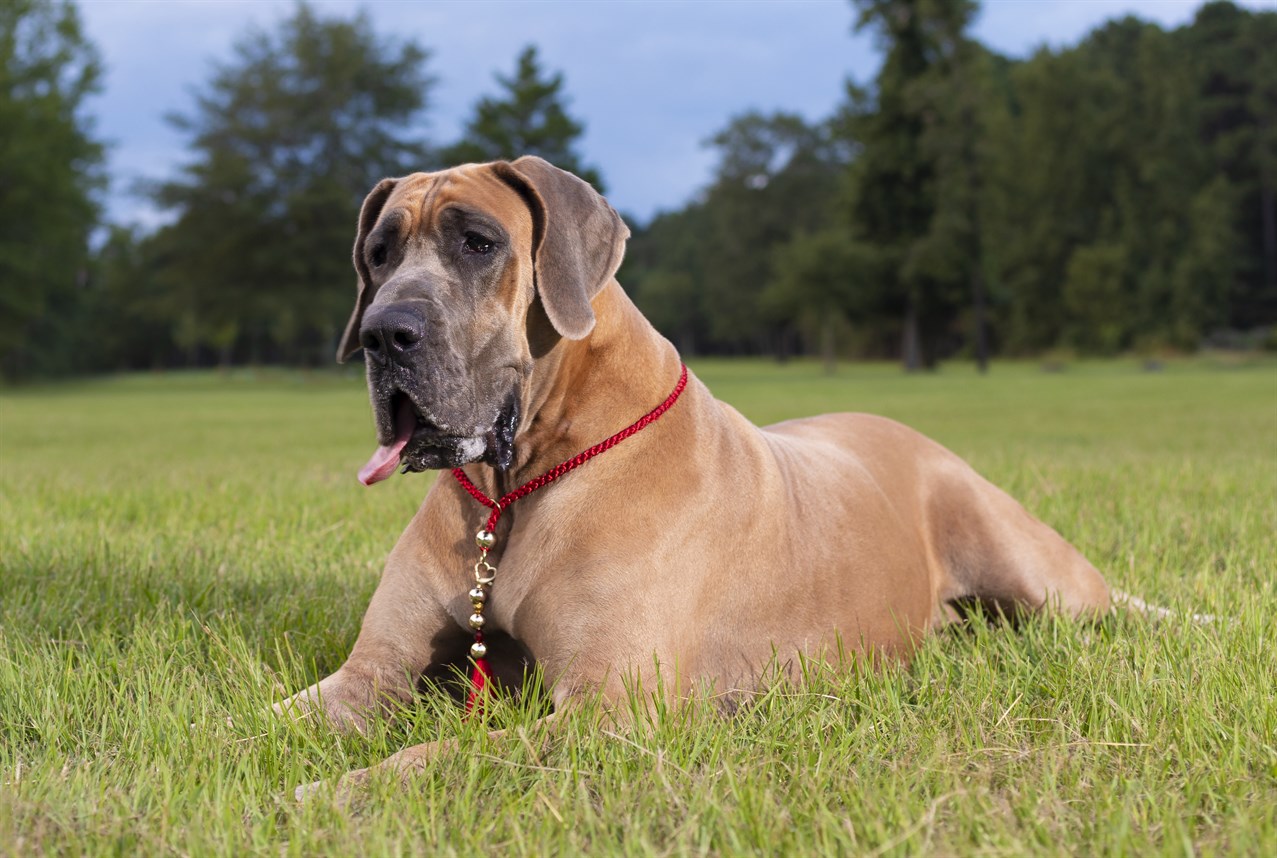Great Dane Expected Life Span

The Great Dane, like many large and giant dog breeds, has a relatively shorter life span compared to smaller breeds. Understanding the factors that contribute to their life expectancy is important for providing the best care and maximising their years of companionship.
Life Expectancy
The typical life span of a Great Dane is around 7 to 10 years. While some may live longer with exceptional care and good genetics, others may have shorter lives due to various factors.
Factors Affecting the Great Dane's Life Span
- Size: Large and giant breeds like the Great Dane often have shorter life spans than smaller dogs. The rapid growth and increased stress on their bodies can lead to a higher risk of health issues.
- Genetics: Genetics plays a significant role in a Great Dane's life expectancy. Responsible breeding practises that aim to reduce the risk of genetic disorders can help extend their lifespan.
- Nutrition: Proper nutrition is vital for Great Danes, especially during their growth phase. A balanced diet that supports their size and prevents obesity is essential for overall health.
- Exercise: Regular exercise helps keep Great Danes in good shape and can contribute to their overall health and longevity. However, overexertion, particularly in puppies, can be detrimental.
- Bloat (Gastric Torsion): Great Danes are particularly susceptible to bloat, a life-threatening condition where the stomach twists on itself, trapping gas and causing circulation problems. Immediate medical attention is necessary to save a dog with bloat.
- Heart Disease: Dilated cardiomyopathy is a heart condition that is relatively common in Great Danes. Regular veterinary check-ups and early detection can help manage this condition and potentially extend a dog's life.
- Orthopaedic Issues: Due to their rapid growth and large size, Great Danes can be prone to joint and musculoskeletal problems. Proper diet and controlled growth can help reduce the risk of these issues.
How long do Great Danes live for?
Great Danes typically live for 7 to 10 years. However, some may live shorter or longer depending on various factors.
Why do Great Danes not live that long?
Several factors contribute to the relatively shorter life span of Great Danes, including their size, genetic predispositions to certain health issues, and the challenges associated with rapid growth. Responsible breeding and attentive care can help mitigate these factors and potentially extend their life expectancy.
Great Dane puppies for sale
- Find Great Dane puppies for sale in ACT
- Find Great Dane puppies for sale in NSW
- Find Great Dane puppies for sale in NT
- Find Great Dane puppies for sale in QLD
- Find Great Dane puppies for sale in SA
- Find Great Dane puppies for sale in TAS
- Find Great Dane puppies for sale in VIC
- Find Great Dane puppies for sale in WA